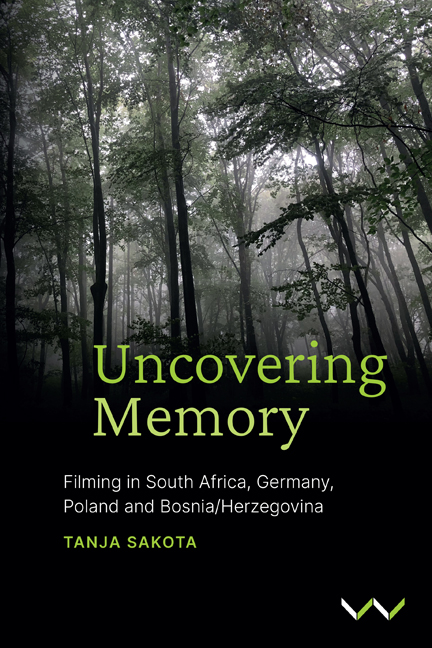Book contents
- Frontmatter
- Dedication
- Contents
- List of Images
- Foreword
- Acknowledgements
- Map of Africa and Europe
- Practice-Based Research, Teaching and Learning
- Part I Working With Students: Cape Town, Johannesburg, Berlin
- Part II Working With Peers: Constitution Hill, Johannesburg
- Part III Working With Myself: Poland, Germany, Bosnia/Herzegovina, South Africa
- Moving Forward
- Film Credits
- Glossary of Terms
- Notes
- Bibliography
- Index
Chapter 7 - Tropes of time workshop
Published online by Cambridge University Press: 24 November 2023
- Frontmatter
- Dedication
- Contents
- List of Images
- Foreword
- Acknowledgements
- Map of Africa and Europe
- Practice-Based Research, Teaching and Learning
- Part I Working With Students: Cape Town, Johannesburg, Berlin
- Part II Working With Peers: Constitution Hill, Johannesburg
- Part III Working With Myself: Poland, Germany, Bosnia/Herzegovina, South Africa
- Moving Forward
- Film Credits
- Glossary of Terms
- Notes
- Bibliography
- Index
Summary
The teaching method that emerged in South Africa was just as spontaneous as the #RhodesMustFall campaign itself. As a teacher, it was impossible to ignore the events and discussions that were happening around space and memory. I therefore encouraged a group of postgraduate students who were taking a course on film fiction to use the film medium as a backdrop to remember the past and rethink the monument space in terms of identity politics.
The course was constructed around three basic themes: location, landscape and identity politics. The short film outcome offered a suitable platform for students to engage with monument and public spaces, the memories they evoked and the way that the film medium could be used to reimagine the space. The purpose was to weave the memory of the space and what it currently represented into the narrative. I shall first provide an overview of the brief given to the students before discussing the films as both the teacher as well as the familial viewer. I shall then provide an interpretation contributed by each of the students to offer a clearer context of each filmmaker's intention. The films have been chosen specifically not because they are similar, but because they are different. The films do not provide a narrative of the past then and now but offer an experimental narrative that creates images that examine the different locations from various perspectives. My ensuing discussion of the different films provides the same fluidity as my role in this book. At certain points, I view the films as a teacher, yet at other points it will become evident that I am the viewer but I am also the inclusive participant and researcher.
LURKING SILHOUETTES BY SHUBHAM MEHTA
The first film (maximum two minutes) required students to film a location or landscape in detail using a maximum of three cuts with no characters and no extra-diegetic sound. The details of the landscape needed to present part of the historical and cultural context of the location. The first short film, Lurking Silhouettes, was directed by Shubham Mehta (shot by Rory Pienaar). The film was shot at UCT, on the memorial steps where Cecil John Rhodes once sat. It used a mobile phone and was edited using Adobe Premiere Pro (which is the industry standard editing software). The location is significant because it addresses the greater context of colonial memory.
- Type
- Chapter
- Information
- Uncovering MemoryFilming in South Africa, Germany, Poland and Bosnia/Herzegovina, pp. 63 - 78Publisher: Wits University PressPrint publication year: 2023



